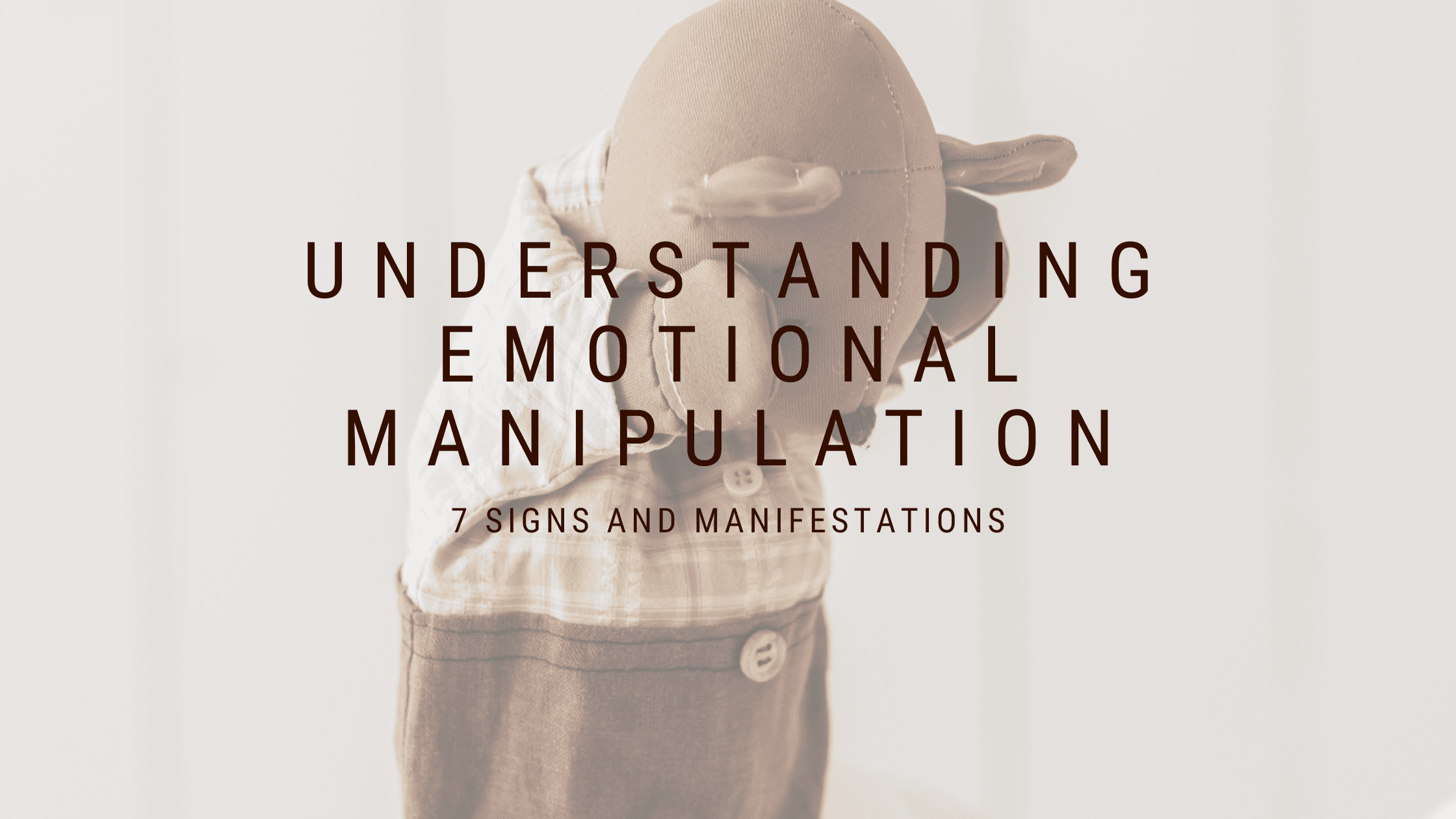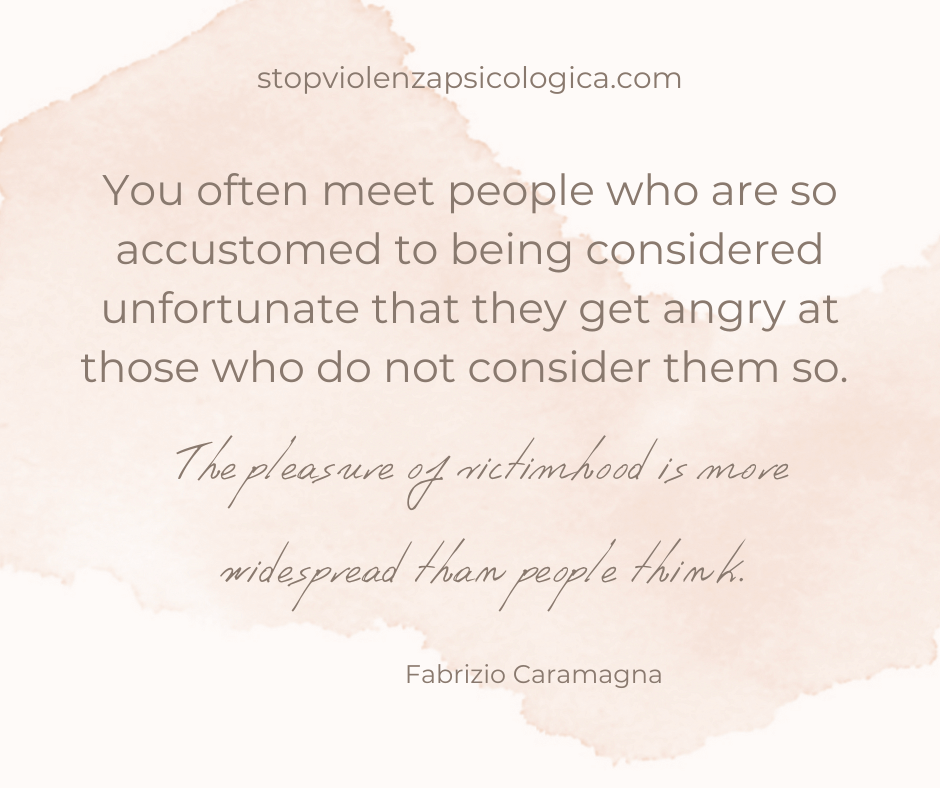What Is Emotional Manipulation: Understanding Its Nature and Manifestations

Emotional manipulation is a subtle and insidious tactic used by individuals to control and influence others’ thoughts, feelings, and behaviors.
It involves strategic maneuvers (overt or covert) aimed at exploiting emotions, fostering dependence, and maintaining power dynamics. This article explores the nature of emotional manipulation, its various manifestations, and the lasting impact it can have on victims’ lives.
What Is Emotional Manipulation?
Emotional manipulation is a form of psychological abuse that relies on tactics designed to exploit vulnerabilities and erode the victim’s sense of self-worth.
The manipulator utilizes subtle and often deceptive strategies to influence and control the victim’s emotions, decisions, and actions. This can include guilt-tripping, distorting facts, playing mind games, and using emotional blackmail.
The distinction between healthy influence and manipulative tactics
In intimate relationships, healthy influence and manipulative tactics are distinct in their intentions, methods, and outcomes.
Healthy influence involves open communication, mutual respect, and genuine consideration for the well-being of both partners. It is characterized by transparency, collaboration, and a shared commitment to growth and mutual satisfaction.
In contrast, manipulative tactics involve deception, coercion, and exploitation of power imbalances. These tactics are often driven by self-interest, control, or the desire to gain advantage at the expense of the other person. Manipulators may employ guilt-tripping, gaslighting, emotional invalidation, or other deceptive strategies to exert control and undermine their partner’s autonomy.
Recognizing the Manifestations of Emotional Manipulation:
How can we tell that someone is manipulating us?
Here are the most common tactics used by serial manipulators.
#1 Guilt-Tripping:
Manipulators use guilt as a tool to control others. They make the victim feel responsible for the manipulator’s unhappiness or misfortune, creating a sense of guilt and obligation.
Guilt-tripping is a manipulative strategy aimed at making you feel responsible or remorseful for actions they may or may not have committed. It involves leveraging emotions, often guilt or shame, to control or influence your behavior.
This tactic can manifest in various forms, such as highlighting past favors, sacrifices, or emotional vulnerabilities to create a sense of indebtedness. The guilt-tripper skillfully crafts a narrative that positions themselves as the victim, relying on your empathy to secure compliance.
By inducing guilt, the manipulator seeks to gain the upper hand in a situation, whether it’s to extract a specific behavior, garner sympathy, or maintain control.
This psychological maneuver can be particularly effective in interpersonal relationships, where the guilt-tripper exploits emotional connections to create a sense of obligation.
Recognizing guilt-tripping is crucial for maintaining healthy boundaries and preventing emotional manipulation. You should be aware of the subtle signs, such as persistent reminders of past mistakes or emotional appeals designed to elicit guilt.
Developing assertiveness and open communication can empower you to resist falling prey to guilt-tripping tactics, fostering more genuine and respectful interactions in personal and professional relationships.

#2 Gaslighting:
Gaslighting is a form of emotional manipulation where the manipulator undermines your perception of reality. They deny or distort events, making you doubt their memory, judgment, and sanity.
Gaslighting is a form of psychological manipulation where an individual, often in a position of power, seeks to make another person doubt their own perceptions, memories, or sanity.
This insidious tactic involves the deliberate distortion of reality, causing the victims to question their thoughts, feelings, and experiences.
Gaslighters employ a range of techniques, including denial, trivialization, or even outright fabrication of events, aiming to create confusion and erode the target’s self-confidence.
The gaslighter often portrays themselves as a trustworthy source, subtly undermining your trust in your own judgment. Over time, you may become increasingly reliant on the gaslighter’s version of reality, leading to a sense of powerlessness and dependency.
Gaslighting is not only an attempt to control your perception but also to maintain dominance and manipulate situations to the gaslighter’s advantage.
Recognizing gaslighting involves staying attuned to shifts in your perception and confidence. You may notice a gradual erosion of self-trust and a heightened dependence on the gaslighter for validation.
Establishing healthy boundaries, maintaining a strong sense of self, and seeking support from trusted people are crucial steps in resisting gaslighting and regaining mental clarity and autonomy.
Awareness and education play pivotal roles in safeguarding against the damaging effects of gaslighting in various relationships and contexts.
#3 Invalidating Emotions:
Manipulators may dismiss or trivialize your emotions, belittling your feelings and experiences. This invalidation can make you doubt your own emotions, leading to confusion and self-doubt.
Invalidating emotions is a manipulative strategy that involves dismissing, minimizing, or denying the feelings and experiences of another person.
This form of emotional manipulation undermines the validity of an individual’s emotions, creating a sense of self-doubt and insecurity.
Invalidators may belittle or trivialize the emotions expressed by the other person, asserting that their feelings are exaggerated, irrational, or unwarranted.
This tactic often occurs in interpersonal relationships, where one party attempts to exert control or diminish the significance of the other’s emotions. The invalidator may employ phrases like “you’re too sensitive” or “you’re overreacting”, attempting to delegitimize the person’s emotional responses. Over time, this can lead to you questioning the validity of your own feelings and may result in a diminished sense of self-worth.
Conversations with the abuser: One day at the supermarket: Me: Who was that person you just bumped into? Him: Oh, just a former co-worker. Me: Then why didn't you introduce me? Him: Oh, it's nobody important. Me: Sorry, I was pushing the cart around, I saw you with him, and when I tried to come over, you acted like you didn't know me. What's going on? Him: What? No, you're imagining things. Me: No, I'm not, and this has happened before. You never introduce me to people you run into outside. How am I supposed to feel? Him: You're blowing this out of proportion, I just want to keep you safe. People can be really jealous, you never know! Me: Jealous of what? What could they possibly think? And what am I supposed to think? We're married, and you're treating me like a stranger. Him: You're being too sensitive! It's not that big of a deal.
Recognizing emotional invalidation is crucial for maintaining emotional well-being. Developing self-awareness and a strong sense of one’s emotional boundaries can help you identify when your feelings are being dismissed.
Establishing open communication and setting boundaries with those who engage in emotional invalidation are important steps in preserving mental and emotional health.
Validating your own emotions and seeking support from empathetic individuals can counteract the detrimental effects of emotional invalidation and foster a healthier emotional environment.

#4 Silent Treatment:
By deliberately withholding communication, affection, or attention, manipulators use the silent treatment as a means of punishment, control, and asserting power over the victim. This tactic can create anxiety, insecurity, and a desperate desire for the manipulator’s validation.
The silent treatment is a passive-aggressive form of emotional manipulation where one person intentionally withholds communication or ignores another individual as a means of exerting control or expressing displeasure.
This tactic is characterized by a deliberate and prolonged silence, leaving the target feeling isolated, anxious, and uncertain about the cause of the silence.
The silent treatment is often used as a power play, attempting to make you feel guilty or anxious about the perceived wrongdoing.
It can create a sense of emotional abandonment, as the person employing this strategy refuses to engage in open communication.
By deliberately withdrawing verbal and emotional engagement, the silent treatment seeks to induce a sense of vulnerability and dependence on the person imposing it.
Recognizing the silent treatment involves being aware of sudden and unexplained communication gaps, often accompanied by a palpable atmosphere of tension.
Responding to silent treatment requires maintaining one’s composure, resisting the urge to appease the silencer, and fostering open communication channels when appropriate.

#5 Victimhood:
Manipulators often portray themselves as victims to garner sympathy, manipulate your perceptions, and deflect responsibility for their actions. They may exaggerate or fabricate circumstances to elicit empathy and manipulate you into meeting their demands.
Victimhood is a psychological and behavioral pattern where an individual consistently adopts the role of a victim, attributing their difficulties or challenges to external factors and refusing to take responsibility for their own actions.
This mindset often involves a constant sense of helplessness, a tendency to perceive oneself as perpetually wronged or mistreated, and a reluctance to acknowledge personal agency.

Individuals embracing a victimhood mentality may use it as a coping mechanism or a strategy to garner sympathy, support, or attention from others.
They frequently externalize blame, portraying themselves as innocent sufferers, even in situations where they may share responsibility. This pattern can lead to a cycle of self-pity, entitlement, and a reluctance to engage in constructive problem-solving.

#6 Pathological Lying:
Manipulators frequently resort to lying and deceit to further their agenda. They may fabricate stories, twist facts, or create elaborate narratives to manipulate the victim’s perception of reality.
Pathological lying is a compulsive behavior characterized by a consistent pattern of dishonesty, exaggeration, and fabrication.
Individuals engaging in pathological lying often do so without apparent motive or tangible benefit, weaving intricate tales that deviate significantly from the truth.
This behavior is distinct from occasional lying and is rooted in a deep-seated need for attention, validation, or a desire to manipulate others.
Pathological liars may create elaborate narratives to enhance their self-image, garner sympathy, or escape accountability. Their stories can be intricate and convincing, making it challenging for you to discern fact from fiction.
This behavior is often driven by an underlying sense of inadequacy, insecurity, or a fear of rejection.
Recognizing pathological lying involves paying attention to inconsistencies in stories, a lack of evidence supporting claims, and an overall pattern of deceit that extends beyond specific situations.
Addressing this behavior requires a delicate approach, as individuals engaging in pathological lying may be unaware of their own falsehoods.

#7 Love-Bombing and Devaluation:
Manipulators employ a cycle of idealization and devaluation. Initially, they shower you with love, affection, and attention (love-bombing), but gradually devalue and undermine your worth, keeping you off-balance and dependent on the manipulator.
Love-bombing is a manipulative technique often employed in the early stages of a relationship, where one person overwhelms the other with excessive affection, praise, and attention.
This intense and rapid display of love and admiration is intended to create a strong emotional bond quickly.
The love-bomber may use grand gestures, constant communication, and lavish compliments to make the target feel special and valued. However, the underlying motive is often to gain control, establish dependency, and create a false sense of security.
Devaluation, on the other hand, is a subsequent phase in manipulative relationships, characterized by a sudden and significant shift in behavior. The once adoring partner becomes critical, dismissive, or even hostile.
This intentional devaluation is designed to destabilize you emotionally, causing confusion and self-doubt.
The devaluer may undermine your self-esteem, question your worth, and create an atmosphere of constant anxiety.
Recognizing love-bombing involves being cautious of overly intense expressions of affection early in a relationship, especially if they feel disproportionate or insincere. Devaluation is evident when a once idealized person becomes consistently critical or neglectful.
Establishing healthy boundaries, maintaining self-awareness, and seeking support from friends or professionals are essential steps in navigating and exiting such manipulative dynamics.
The Psychological Impact of Emotional Manipulation:
Emotional manipulation can have severe and long-lasting effects on victims.
It erodes self-esteem, distorts reality, and leaves individuals feeling confused, isolated, and powerless.
Emotional manipulation in relationships creates a ripple effect that can significantly impact both individuals involved and the relationship as a whole. The effects of emotional manipulation can extend far beyond the immediate interaction, shaping the dynamics and quality of the relationship over time.
Firstly, emotional manipulation undermines trust and erodes the foundation of a healthy relationship. When one partner consistently employs manipulative tactics such as gaslighting, guilt-tripping, or invalidating emotions, it creates a climate of doubt, uncertainty, and insecurity. This erosion of trust can lead to increased tension, communication breakdowns, and a sense of emotional distance between partners.
Furthermore, emotional manipulation fosters imbalance and power dynamics within the relationship. The manipulator may exert control over the other person, leading to feelings of powerlessness, dependence, and resentment in the manipulated individual. This imbalance can create a cycle of codependency and perpetuate unhealthy relationship patterns.
Moreover, emotional manipulation stifles authentic expression and intimacy within the relationship. When one partner feels compelled to suppress their true feelings, thoughts, or desires to appease the manipulator, it hinders genuine connection and intimacy. Over time, this suppression can lead to emotional disconnection, resentment, and a sense of emotional isolation.
Overcoming Emotional Manipulation:
Overcoming emotional manipulation requires recognizing the manipulative tactics, establishing boundaries, building self-awareness, and seeking support from trusted individuals or professionals, such as therapists or counselors.
Developing assertiveness, practicing self-care, and fostering healthy relationships are essential for healing and regaining autonomy.
The importance of self-awareness in recognizing manipulation:
Self-awareness plays a crucial role in recognizing manipulation within relationships. By cultivating self-awareness, you can better understand your own emotions, thoughts, and behaviors, which allows you to recognize when you are being manipulated by others.
When you are self-aware, you are more attuned to your own feelings and instincts, enabling you to identify when something feels off or manipulative in your interactions with others.
You can recognize patterns of behavior that trigger feelings of discomfort, unease, or doubt, signaling potential manipulation tactics at play.
Furthermore, self-awareness empowers you to discern between healthy influence and manipulative tactics. By understanding your own values, boundaries, and needs, you can better assess whether the actions or words of another person align with your own values and contribute to your well-being, or if you are being manipulated for someone else’s benefit.
In addition, self-awareness allows you to recognize your vulnerabilities and triggers, making you less susceptible to manipulation tactics that exploit these weaknesses. By acknowledging and addressing your own vulnerabilities, you can strengthen your emotional resilience and assertiveness, making it more difficult for manipulators to exert control over you.
Overall, self-awareness serves as a powerful tool in recognizing manipulation within relationships, enabling you to protect your well-being, assert your boundaries, and cultivate healthier and more authentic connections with others.
Building resilience is an essential protective measure against manipulation:
Resilience equips individuals with the strength, adaptability, and self-confidence needed to withstand and overcome manipulative tactics.
One key aspect of building resilience involves developing a strong sense of self-worth and self-esteem. When you have a solid foundation of self-worth, you are less likely to be swayed by manipulative attempts to undermine your confidence or worthiness. You are better able to recognize your own value and assert your boundaries, making it more difficult for manipulators to exploit insecurities or vulnerabilities.
Additionally, resilience involves cultivating emotional intelligence and self-awareness. By honing these skills, you can better recognize when you are being manipulated and understand the underlying motives behind manipulative behavior. This awareness empowers you to respond assertively, set boundaries, and protect your emotional well-being.
Furthermore, building resilience involves fostering strong support networks and seeking help when needed. Having trusted friends, family members, or professionals to turn to for guidance and support can provide validation, perspective, and encouragement during challenging times. These supportive relationships can serve as a buffer against manipulation and provide a source of strength and resilience.
Overall, building resilience is a powerful protective measure against manipulation, enabling you to assert your autonomy, maintain healthy boundaries, and cultivate authentic and fulfilling relationships built on trust, respect, and mutual understanding.
Conclusion:
In conclusion, recognizing and understanding manipulative behaviors such as pathological lying, victimhood, love-bombing, devaluation, gaslighting, guilt-tripping, emotional invalidation, and the silent treatment is crucial for fostering healthy relationships and personal well-being.
These manipulative tactics can erode trust, destabilize emotions, and damage self-esteem.
Building awareness around these behaviors empowers you to identify and address toxic dynamics, setting the stage for healthier connections.
It is essential to cultivate open communication, assertiveness, and the ability to establish and maintain boundaries. Seeking support from friends, family, or professionals can provide valuable perspectives and assistance in navigating these challenging situations.
Recognizing manipulative behaviors is a vital step, but it is equally important to take proactive measures to protect your emotional and mental health.
By fostering self-awareness, promoting healthy communication, and embracing personal responsibility, you can build resilient relationships and safeguard yourself against the detrimental effects of manipulation.
Thank you for reading this post. If it was helpful don’t hesitate to share it with your friends and leave me a comment below.

Resources:
- “The Gaslight Effect: How to Spot and Survive the Hidden Manipulation Others Use to Control Your Life” by Dr. Robin Stern – This book explores the concept of gaslighting, a form of emotional manipulation, and provides insights and strategies for identifying and addressing it.
- “In Sheep’s Clothing: Understanding and Dealing with Manipulative People” by Dr. George K. Simon Jr. – This book delves into the tactics used by manipulative individuals and offers guidance on how to recognize and protect oneself from manipulation.
- “Emotional Blackmail: When the People in Your Life Use Fear, Obligation, and Guilt to Manipulate You” by Dr. Susan Forward – This book examines the dynamics of emotional blackmail and provides tools and techniques for breaking free from manipulative relationships.
- “Psychopath Free: Recovering from Emotionally Abusive Relationships with Narcissists, Sociopaths, and Other Toxic People” by Jackson MacKenzie – This book explores the impact of manipulation and emotional abuse in relationships with narcissists and sociopaths, offering insights and support for recovery.
- “The Verbally Abusive Relationship: How to Recognize It and How to Respond” by Patricia Evans – While primarily focused on verbal abuse, this book also addresses manipulation as a form of emotional abuse within relationships and provides strategies for dealing with it.
- Dominance or deceit: The role of the Dark Triad and hegemonic masculinity in emotional manipulation, Chloe Waddell, George Van Doorn, Evita March, Rachel Grieve
- A Meta-Analytic Investigation of the Relationship Between Emotional Intelligence and Emotional Manipulation, Nguyen Nhu Ngoc, Nham Phong Tuan, and Yoshi Takahashi
- The Dark Side of Emotion Recognition – Evidence From Cross-Cultural Research in Germany and China, Helena S. Schmitt, Cornelia Sindermann, Yina MaYina Ma, M. Kendrick, Benjamin Becker, Christian Montag
